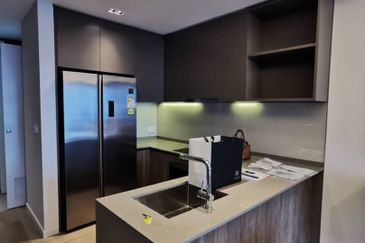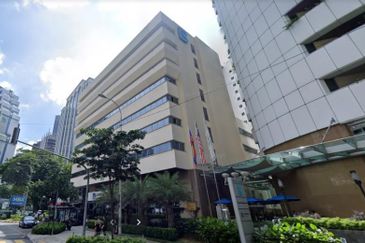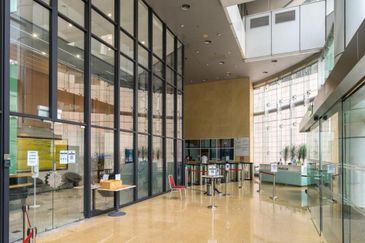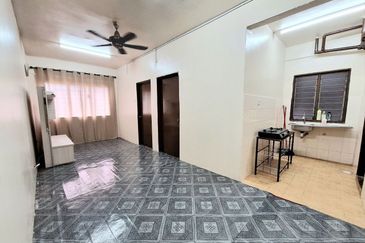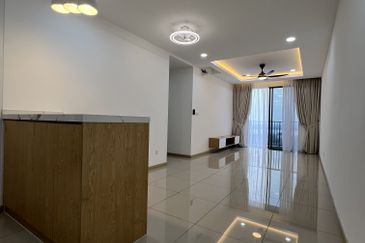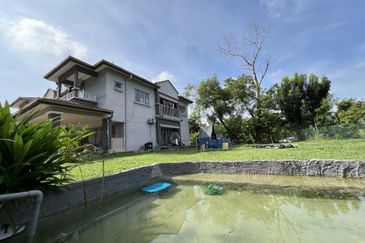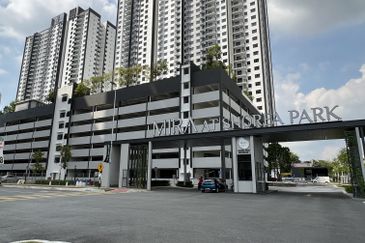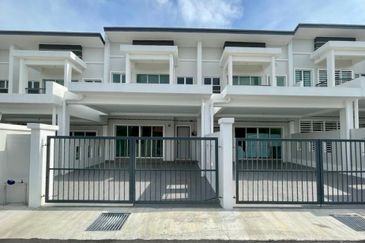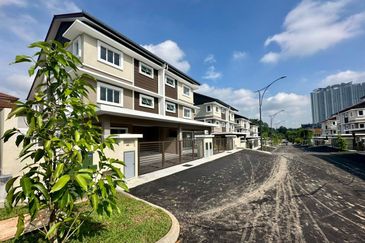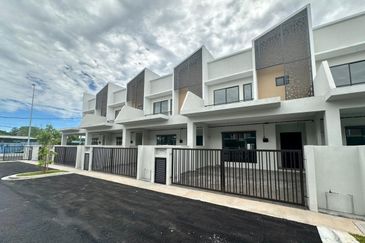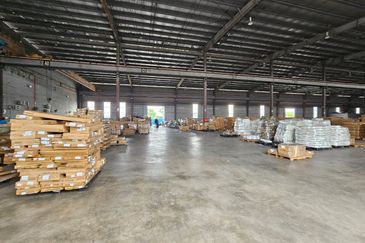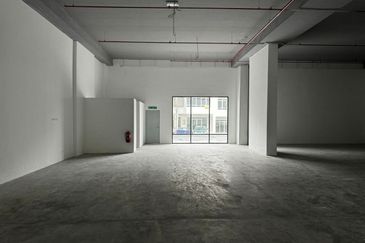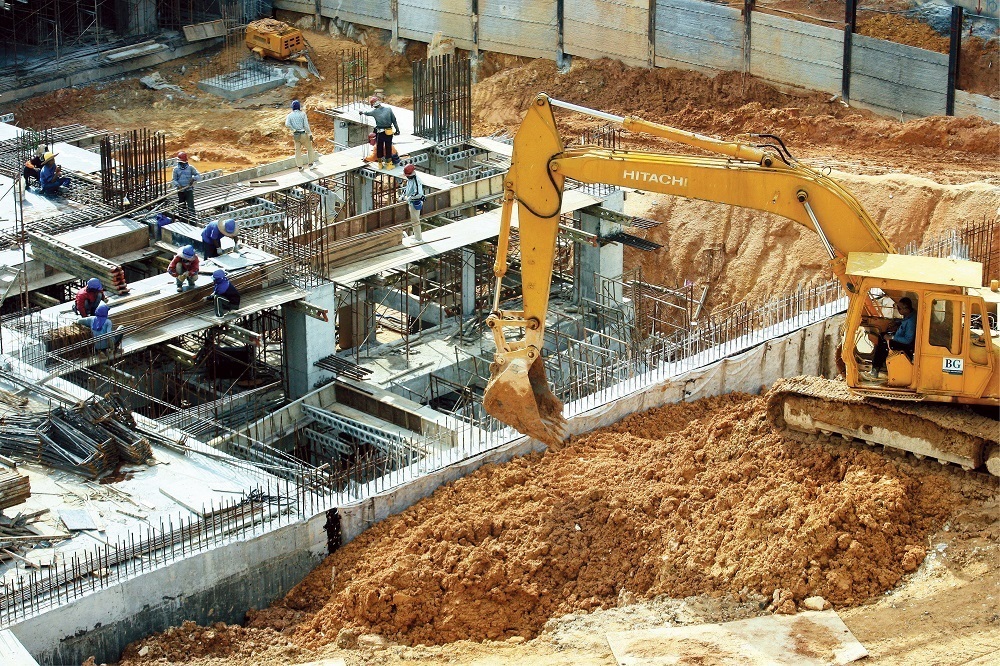
PETALING JAYA (Dec 28): The previous government administration pushed infrastructure development in Malaysia between 2009 and 2018 but also left the country with a mountain of debt, the Edge reported today.
The report said projects such as the extension of the light rail transit (LRT) in the Klang Valley to the Second Penang Bridge contributed to the economy and directly benefited a host of construction and construction-related companies but required a lot of borrowed money made worse by ballooning costs.
The construction boom ended after the 14th general election (GE14) in May 2018 when the new Pakatan Harapan government reviewed and downsized several big-ticket infrastructure projects.
The Edge said Malaysia’s infrastructure binge began after Najib mooted his signature Economic Transformation Programme (ETP) in September 2010 to double Malaysia’s per capita income to US$15,000 by 2020 and achieve a high-income nation status, which required about US$444 billion of investments from both the public and private sectors.
Among the huge infrastructure projects promoted as part of the ETP were the extension of the LRT line to Putra Heights at a cost of RM10 billion, the RM23 billion Sungai Buloh-Kajang mass rapid transit (MRT1) and the RM4.5 billion Second Penang Bridge.
Another expensive project was the Kuala Lumpur International Airport 2 (klia2), whose cost ballooned to RM4 billion from the initial budget of RM1.6 billion.
The Perumahan Rakyat 1Malaysia (PR1MA) affordable housing scheme received about RM8 billion to deliver a million homes by 2020 but only 16,682 units were completed. The project is currently being restructured by the new government administration.
The Pakatan Harapan government also decided to postpone the Kuala Lumpur–Singapore high speed rail (HSR) project until May 2020, reduce the scale of Bandar Utama–Johan Setia LRT (LRT3) as well as renegotiate contracts for Sungai Buloh-Serdang-Putrajaya MRT (MRT2) with MMC-Gamuda. The cost of the East Coast Rail Link (ECRL) was also reduced from the original RM65.5 billion as the link was realigned.
The government reviews also discovered payment irregularities in the the RM10.4 billion Trans-Sabah Gas Pipeline (TSGP) and Multi-Product Pipeline (MPP) projects in Sabah, as RM8.3 billion or 88% of the RM9.4 billion contract value had been paid out, even though only 13% of the work had been completed. The projects have since been scrapped, although negotiations are still ongoing between the government and the parties involved.
The Edge said critics questioned the viability of some of the infrastructure projects and their benefit to Malaysia while others argue that terminating contracts awarded by the previous administration will hit the country’s reputation as a stable and attractive investment destination.
Read the full report in this week’s The Edge Malaysia
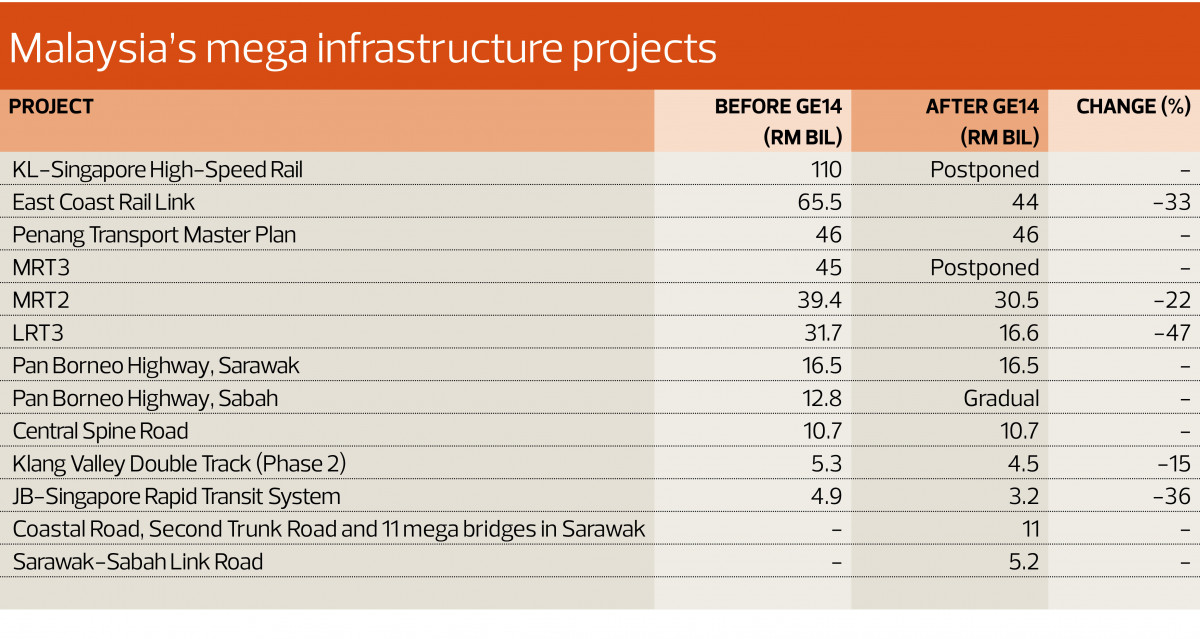
TOP PICKS BY EDGEPROP
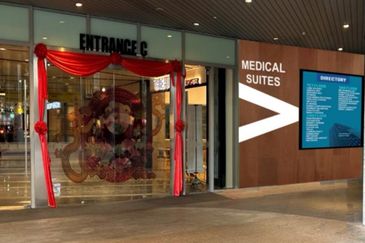
Damansara Heights
Damansara Heights, Kuala Lumpur
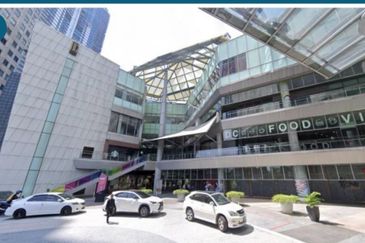
Damansara Heights
Damansara Heights, Kuala Lumpur
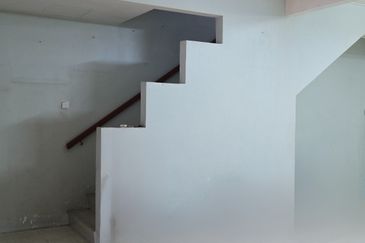
Taman Bayu Tinggi
Bandar Botanic/Bandar Bukit Tinggi, Selangor

Setia Eco Park Phase 8
Setia Eco Park, Selangor
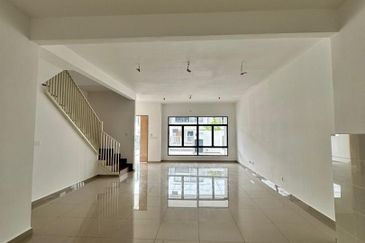
Setia Alam
Setia Alam/Alam Nusantara, Selangor


